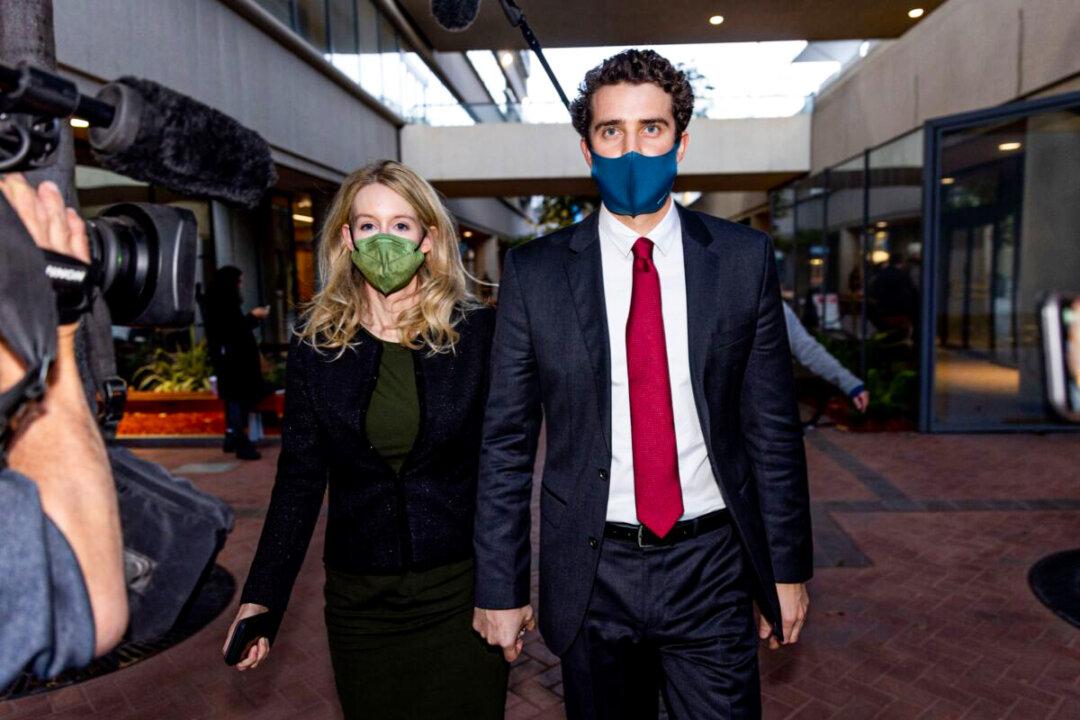SAN JOSE, Calif.—Theranos founder Elizabeth Holmes testified on Monday she was abused by her former romantic partner and Theranos executive Ramesh “Sunny” Balwani and that the relationship had a pervasive impact on her life during the time when she is accused of committing fraud.
During her fourth day on the stand, Holmes, 37, occasionally choked up as she spoke about her decade-long relationship with Balwani, Theranos’ chief operating officer, whom she met when she was 18 and he was 38.





